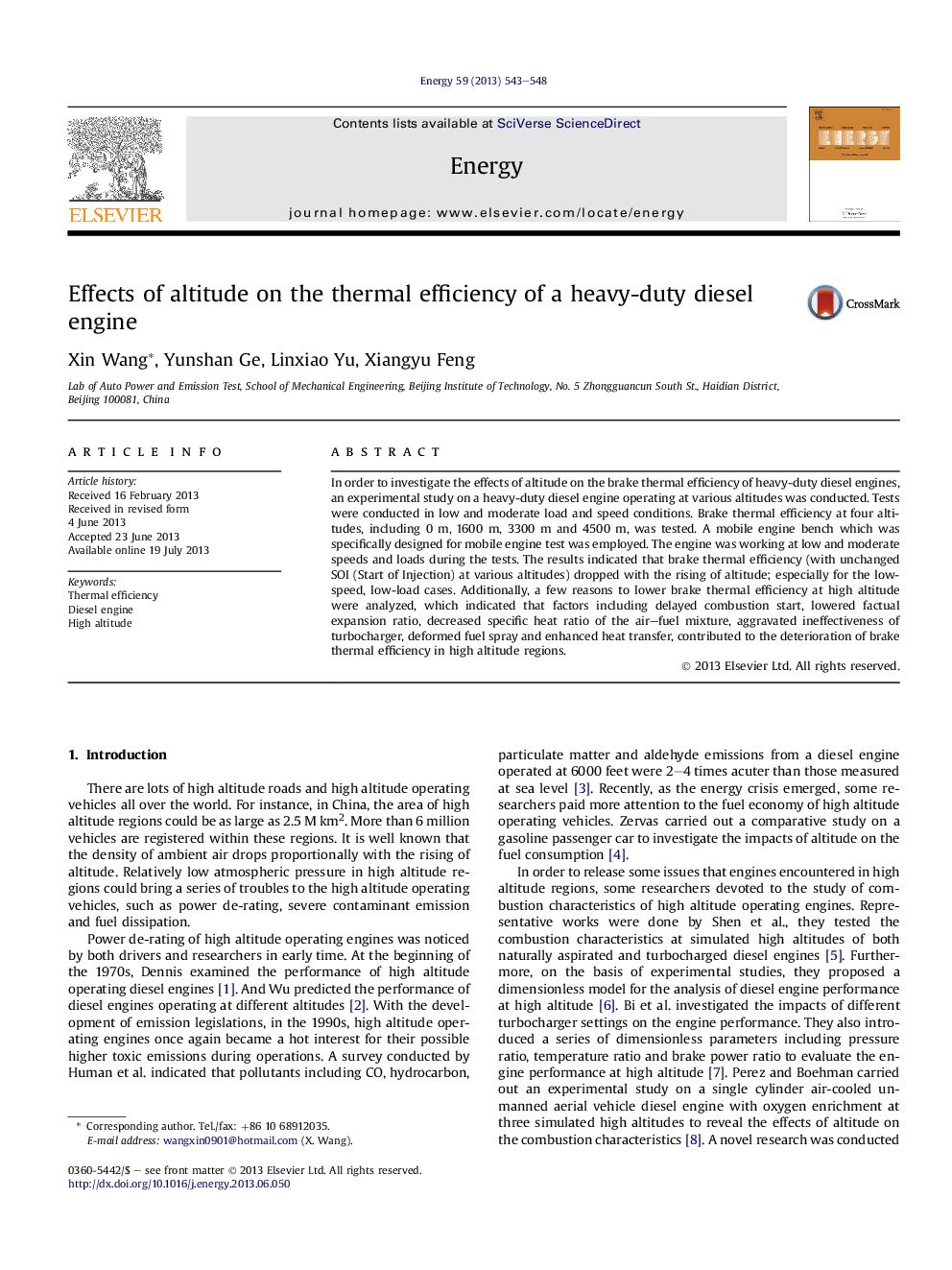| Article ID | Journal | Published Year | Pages | File Type |
|---|---|---|---|---|
| 8079233 | Energy | 2013 | 6 Pages |
Abstract
In order to investigate the effects of altitude on the brake thermal efficiency of heavy-duty diesel engines, an experimental study on a heavy-duty diesel engine operating at various altitudes was conducted. Tests were conducted in low and moderate load and speed conditions. Brake thermal efficiency at four altitudes, including 0Â m, 1600Â m, 3300Â m and 4500Â m, was tested. A mobile engine bench which was specifically designed for mobile engine test was employed. The engine was working at low and moderate speeds and loads during the tests. The results indicated that brake thermal efficiency (with unchanged SOI (Start of Injection) at various altitudes) dropped with the rising of altitude; especially for the low-speed, low-load cases. Additionally, a few reasons to lower brake thermal efficiency at high altitude were analyzed, which indicated that factors including delayed combustion start, lowered factual expansion ratio, decreased specific heat ratio of the air-fuel mixture, aggravated ineffectiveness of turbocharger, deformed fuel spray and enhanced heat transfer, contributed to the deterioration of brake thermal efficiency in high altitude regions.
Related Topics
Physical Sciences and Engineering
Energy
Energy (General)
Authors
Xin Wang, Yunshan Ge, Linxiao Yu, Xiangyu Feng,
